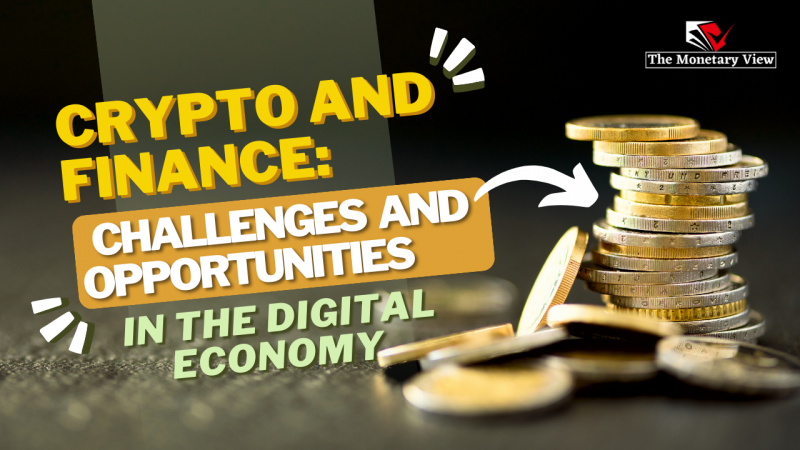The digital revolution has not only transformed the way we live and communicate but has also revolutionized the financial world. The rise of cryptocurrencies and blockchain technology has opened up a new frontier in finance, creating both challenges and opportunities for individuals and businesses around the world. In this article, we will explore the impact of crypto on the financial sector, highlighting the key challenges and opportunities it presents.
The Challenge of Regulation
One of the most significant challenges in the digital economy is the regulatory environment. Traditional financial systems are subject to strict government regulations to ensure stability and protect consumers. Cryptocurrencies, on the other hand, have introduced a level of decentralization and anonymity that challenges traditional regulatory frameworks. Governments and financial institutions are now grappling with how to regulate these new forms of digital assets.
The challenge of regulation is two-fold. On one hand, regulators need to protect consumers from fraud, scams, and market manipulation. On the other hand, they must strike a balance by not stifling innovation and economic growth. Striking this balance is essential for the long-term success of cryptocurrencies and their integration into the global financial system.
Opportunities for Financial Inclusion
Cryptocurrencies have the potential to bring financial services to the billions of unbanked and underbanked people worldwide. Traditional banking systems often exclude those who lack access to basic financial services, but cryptocurrencies can bridge this gap. With a smartphone and an internet connection, anyone can participate in the digital economy, access banking services, and engage in global trade.
Financial inclusion can unlock economic opportunities for individuals in developing countries, reduce poverty, and drive economic growth. Cryptocurrencies, as a means of payment and store of value, provide a lifeline to those who have been excluded from the traditional financial system.
The Rise of Decentralized Finance (DeFi)
Decentralized Finance, or DeFi, is a rapidly growing sector within the crypto space. It offers a wide range of financial services, including lending, borrowing, trading, and yield farming, without the need for traditional intermediaries such as banks. DeFi platforms are built on blockchain technology and smart contracts, which automate financial transactions, making them more efficient and cost-effective.
The rise of DeFi presents both opportunities and challenges. DeFi platforms offer higher yields on deposits and innovative financial products, attracting investors looking to maximize returns. However, the absence of regulatory oversight and the experimental nature of DeFi projects also pose risks, including smart contract vulnerabilities and market volatility.
Security Concerns and Hacking Risks
Security is a paramount concern in the digital economy. The blockchain technology that underpins cryptocurrencies is considered secure, but the onus is on users to protect their assets. Hacking, phishing, and fraud are prevalent in the crypto space, with billions of dollars stolen annually.
The challenge here is to educate users on best security practices, develop more user-friendly security tools, and enhance the overall security of the crypto ecosystem. The rise of blockchain forensics and increased regulatory scrutiny can help mitigate some of these security concerns.
The digital economy, driven by cryptocurrencies and blockchain technology, is reshaping the financial landscape. While challenges such as regulation and security risks persist, the opportunities for financial inclusion, DeFi innovation, and economic growth are immense. As the digital economy continues to evolve, striking the right balance between innovation and regulation will be crucial to its long-term success. Crypto and finance are on a collision course, and the outcome will undoubtedly transform the way we interact with money and the global economy.






